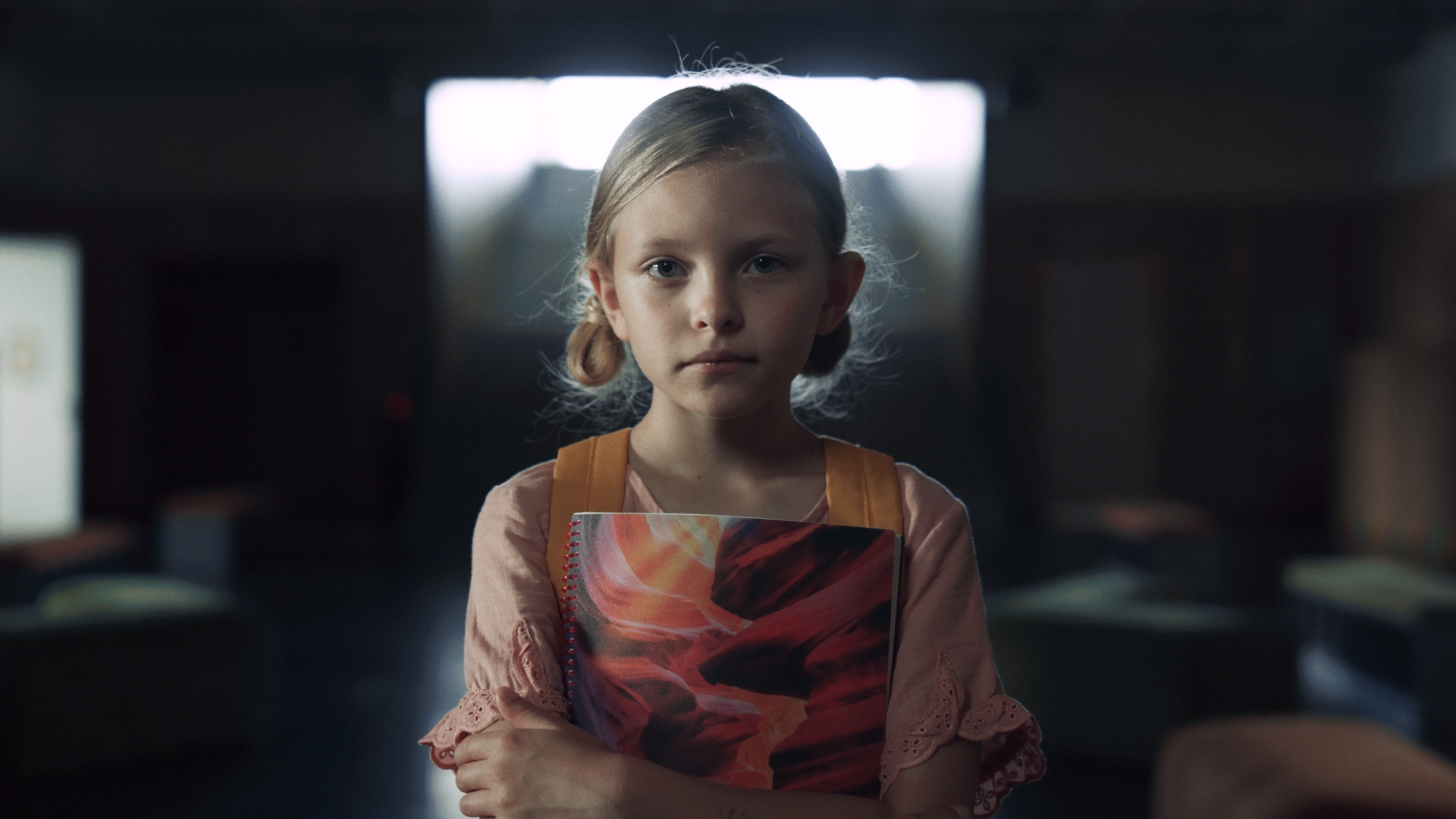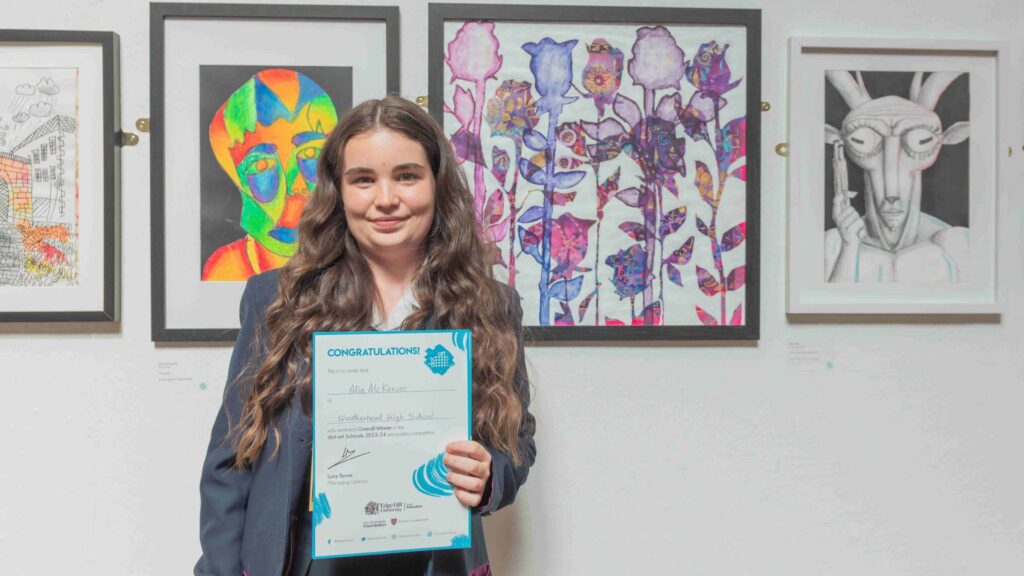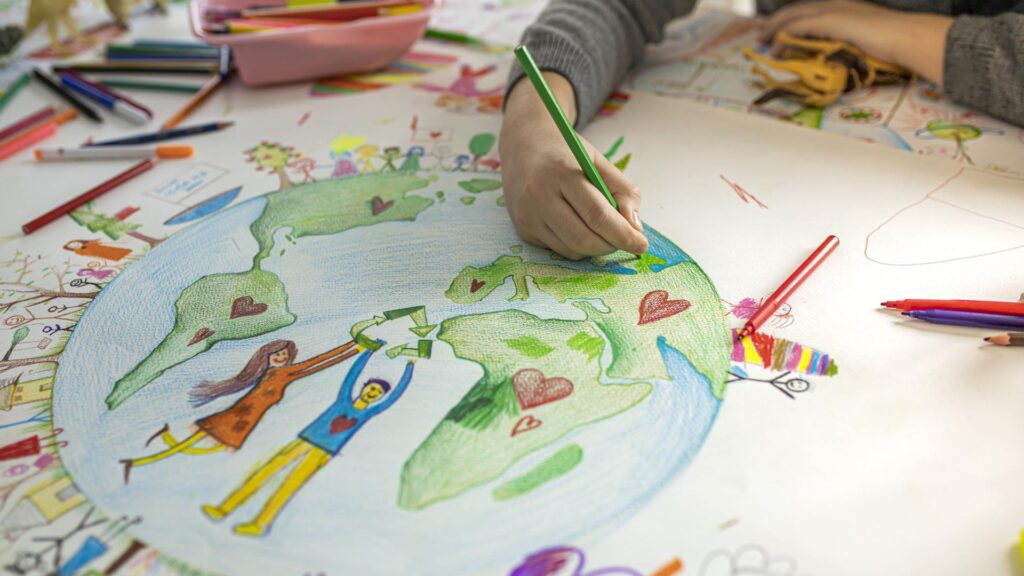This is one of the largest research grants of its kind ever awarded nationally in the arts and arts therapies.
Arts4Us will bring together under one digital platform the best practice in arts and arts therapies, making it easier for young people and their families to find the crucial help they need.
Professor Vicky Karkou from Edge Hill University is leading this massive collaborative enterprise with more than 50 partners from academic institutions, NHS trusts, schools and community organisations in the North West.

Professor Karkou said: “One in five children and young people are struggling with their mental health as they transition from childhood to adolescence. We know that the services available do not cover their needs.
“Thinking and talking about problems is not always how children choose to communicate and resolve their problems. Creative interventions, like music classes, painting sessions, drama and theatre projects or dance movement therapy groups, are an effective alternative but may not be easily accessible in mental health services.
“Arts4Us aims to change that. We want to ensure children and young people will be able to access the mental health support they need regardless of where they live.”
The Arts4Us interactive platform will focus on 9-13-year-olds, encouraging them to develop skills around how to access and maximise the benefits of arts activities which support their mental health. They will help co-design all aspects of the project, ensuring the content and support is user-friendly and relevant to them.
NHS services will also be able to use the digital platform to signpost patients to support, building collaborations across community partners and healthcare in the North West and, as the project can be scaled up, also nationally and internationally.
The Jameel Arts & Health Lab, in collaboration with the World Health Organization, became a key collaborative partner of Arts4Us with Professor Karkou’s involvement as an affiliated researcher of the lab.
Dr Nils Fietje, Research Officer at WHO and Co-Director of Jameel Arts & Health Lab, commended the project for its commitment to improving the wellbeing of children and young people, in line with WHO’s own ambition to prioritise and transform mental health.
“WHO has called on all countries to deepen the value given to mental health, prioritising promotion and prevention, and developing networks of community-based services.
“Arts4Us will do just that, having a positive impact on the mental health of young people not only in the North West and across England but also, once scaled up, on an international level.”
Professor Nusrat Husain, Director of Research and Innovation at Mersey Care NHS Foundation Trust, said: “We know that 50 per cent of mental disorders begin before the age of 14 years old and unfortunately many children and young people do not have access to appropriate mental healthcare.
“Arts4Us, which is of huge public mental health importance, has the potential to change this because the intervention is engaging and builds on co-developed research with young people.”
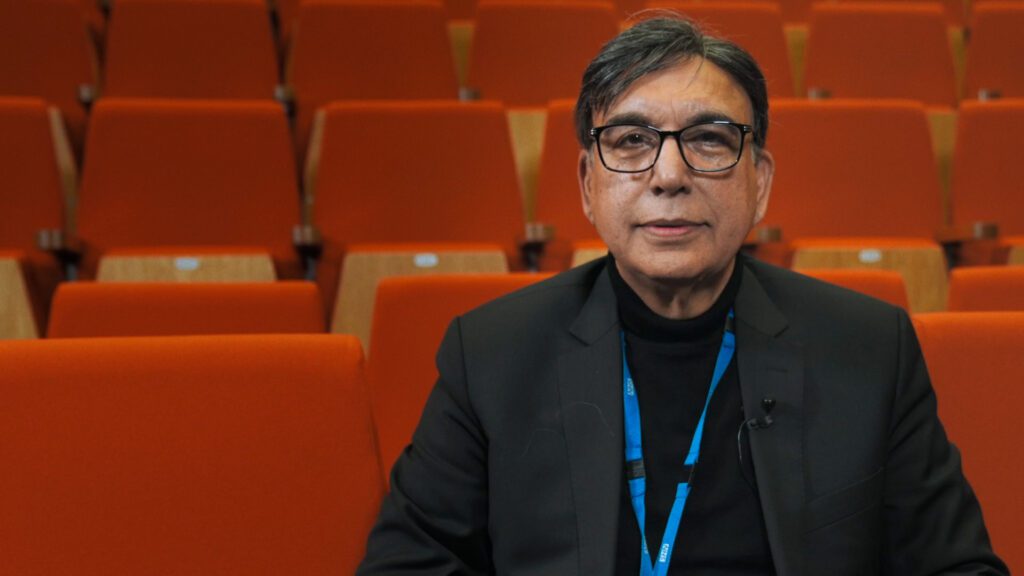
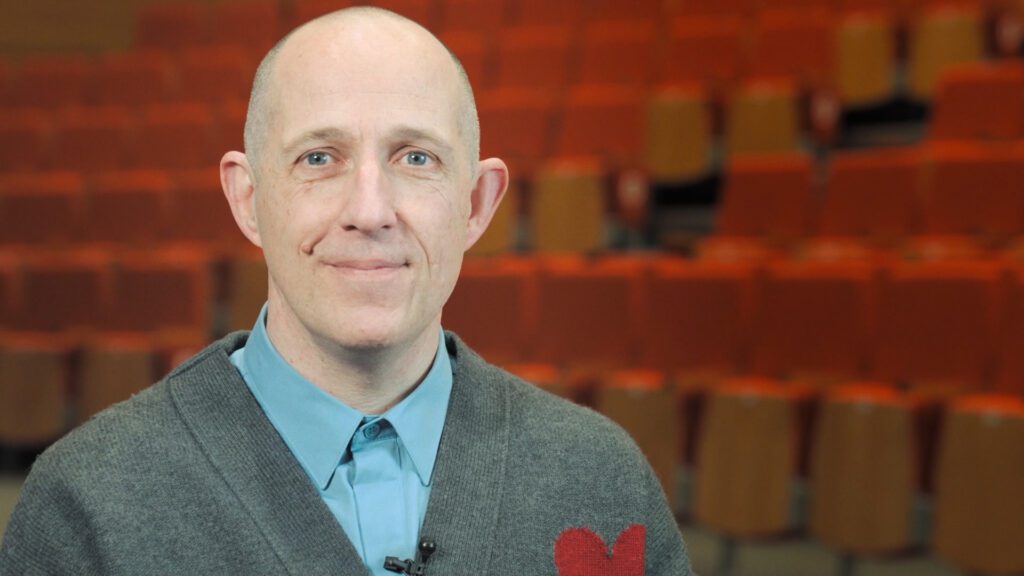
Stephen Sandford, music therapist and Chief Allied Health Professions Officer for NHS Lancashire and South Cumbria Integrated Care Board, added: “We know our children and young people recognise the positive contribution that arts and culture bring to their health and wellbeing.
“And this landmark funding award for Arts4Us is a fabulous opportunity to further integrate the value of arts, culture and creative health partnerships.”
UK Research and Innovation (UKRI) awarded Arts4Us £2.5million in the third phase of its Mobilising Community Assets to Tackle Health Inequalities programme.
The funding boost is a record-breaking success for Edge Hill: the sum is the largest single research grant ever awarded to the University.
Arts4Us builds on the success of other Edge Hill research programmes including Arts for the Blues, an arts-based group intervention, co-led by Professor Karkou at Edge Hill University and Dr Joanna Omylinska-Thurston and Professor Scott Thurston from The University of Salford that has been scaled up for routine use in several hospitals and community organisations. Learning from Arts for the Blues will be a useful blueprint to improve provision for children and young people through Arts4Us.
Arts4Us joins an expanding body of research programmes at Edge Hill University which aim to address some of society’s most pressing problems, such as the current mental health crisis. Award-winning Tackling the Blues (TtB), in partnership with Everton in the Community and Tate Liverpool, has been a trailblazing project in the support of children’s mental health through arts and sports for more than 10 years.
The team behind the successful bid and ongoing project collaboration includes Edge Hill University colleagues: Dr Helen O’Keeffe, Associate Dean in the Faculty of Education and Andy Smith, Professor of Sport, Physical Activity and Mental Health, both TtB project leads; Dr Michelle Howarth, Senior Engagement Fellow; Dr Shaun Liverpool, Senior Lecturer in Child and Adolescent Mental Health; and Marcello Trovati, Professor in Computer Science.
Arts4Us falls under Edge Hill’s thriving Research Centre for Arts and Wellbeing and will create 11 new appointments – some of which are currently open for applications – offering exciting new opportunities for graduates and boosting skills in the region. These include:
- Roles at Edge Hill University – postdoctoral research fellow in arts, health and therapy, two health-based creative health associates, four community-based creative health associates, research project manager and research assistant – digital platforms;
- University of Liverpool – postdoctoral research associate;
- University of Salford – research assistant in arts, health and therapy.
Find out more about Arts4Us here. If you are 24 or under, and have lived experience of mental health symptoms between nine and 13 years of age, you could help to shape the project as a YoungArts4Us panel member – email [email protected].
UKRI/AHRC context
Arts4Us is one of several projects to receive funding as part of UKRI’s Mobilising Community Assets to Tackle Health Inequalities programme, led by the Arts and Humanities Research Council, which aims to improve health through access to culture, nature and community.
The projects seek to tackle entrenched and long-standing health inequalities in Britain’s poorest communities by exploring how health systems can collaborate more effectively with communities.
Some of the projects will explore ways of addressing health inequalities in rural and coastal communities. Others will be focused on tackling systems change to support specific communities including:
- Roma communities
- refugees and migrant communities
- people experiencing homelessness
- deaf British Sign Language-using communities
- children and young people experiencing mental health challenges.
AHRC Health Inequalities Programme Director Helen Chatterjee said: “The evidence is clear – intellectual stimulation, a sense of purpose, engagement in your community and a fulfilling social life are as important as diet, exercise and medical care when it comes to living a long and healthy life. Yet often public health interventions neglect this reality.
“These projects seek to improve the length and quality of our lives by making use of the rich cultural, artistic, nature and social resources that already exist within our communities. In this way, we can shape a healthier, happier Britain.”
University of Salford
Dr Joanna Omylinska-Thurston, Co-investigator from the University of Salford, said: “There is a great need for new evidence-based approaches to mental health care and we know from the success of our Arts for the Blues project that psychological interventions that safely integrate the arts and creativity can make a huge difference.
“We now have the opportunity to build collaborations between the community and the NHS to provide effective new therapies for our young people that can have a real impact.”
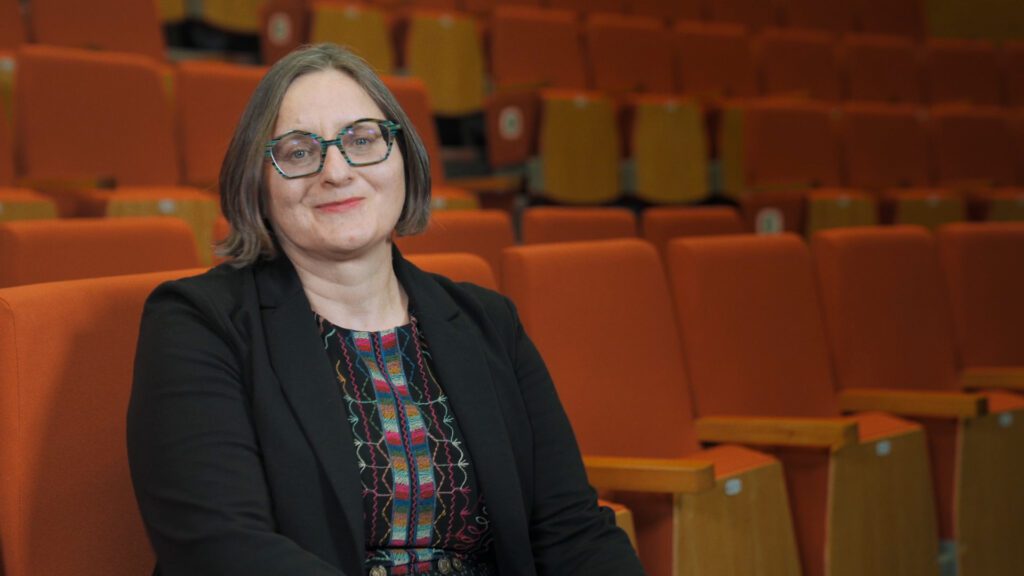
Professor Scott Thurston, Co-investigator from the University of Salford, added: “This is a huge opportunity to make a much-needed intervention in the mental health crisis engulfing the younger generation. Our recent experiences of training NHS CAMHS staff in the Arts for the Blues model has showed us just how important creative therapies are going to be in making the future brighter for children and young people.”
University of Liverpool
Dr Fei Chen, Reader in Architecture and Urban Design, is leading the first work package for Arts4Us and the University of Liverpool’s School of Architecture will host a post-doc associate in the Urban Form and Social Space research group.
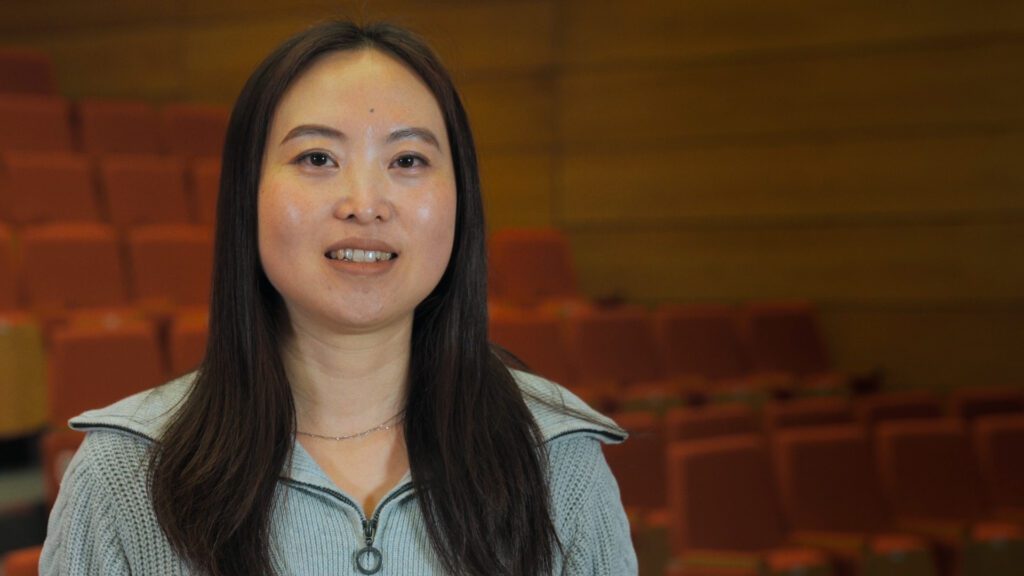
Dr Chen said: “The goal of this first work package is to develop a prototype of a digital platform using a mapping methodology for community assets, including arts practices and the community spaces that support them.
“Our aim is to integrate digital technologies that specifically appeal to children and young people through a process of co-creation. I am truly excited to collaborate on this significant endeavour with our extensive and diverse network of partners.”
February 14, 2024
